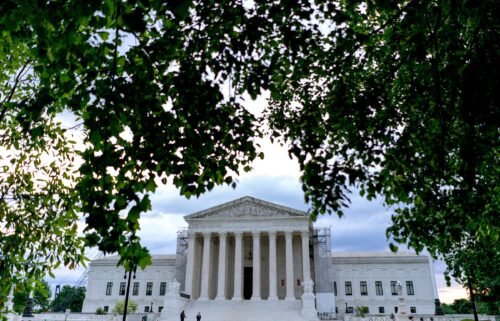‘Spot the fakes’: British political journalism faces a reckoning

As Britain’s Brexit crisis morphs into election fever, the country’s political journalists are taking friendly fire for reporting anonymous briefings by government sources who critics say are misleading the public.
Veteran journalists and commentators have gone on the attack in recent weeks, accusing some of the country’s top broadcast and newspaper reporters of simply passing on information from the government of Prime Minister Boris Johnson that they say has crossed the line into deliberately peddling misinformation while hiding under a cloak of anonymity.
Peter Oborne, a former chief political commentator of The Daily Telegraph, went on the offensive last week, publishing a blistering account of several stories that he said turned out to be false.
In one example, the Mail on Sunday published a front page splash claiming that the government was working on “extensive investigations” into whether lawmakers were colluding with “foreign powers” to try to block Brexit, citing two anonymous sources at Number 10, the prime minister’s office. Oborne said that he had called Number 10 and the Cabinet Office, both of which said there was no such investigation.
“They’re turning their readers into dupes,” Oborne wrote.
The Mail on Sunday told Oborne it is standing by its story.
“The trouble with the Johnson administration is that it has taken existing conventions and pushed them to the point where political correspondents are complicit in disinformation campaigns,” columnist Nick Cohen wrote in The Spectator. “In the end, their viewers and readers will lose trust in them. Indeed, many already are.”
Adam Bolton, one of Sky News’ most prominent anchors, wrote in a Saturday column “Journalists, don’t be part of the government’s ‘fake news’ machine.”
“[N]o sensible reporter should give credence to what this government says on the record, let alone what shadowy sources, who aren’t prepared to put their names to their claims, are alleging,” he wrote.
The use of anonymous sources for covering British politics is long established. The group of reporters accredited to cover the UK parliament is known as the “lobby,” a term derived from a restricted location in Parliament, the Members’ Lobby, to which journalists enjoy special access on the proviso they do not reveal the sources of stories gleaned there. In 1997, the twice-daily briefings held by the prime minister’s official press spokespeople were placed on the record — although the spokespeople, career civil servants, are typically not named beyond their titles.
In addition, there is a collection of senior political aides in Downing Street who brief reporters privately. Their material often finds its way into print attributed to “Number 10 sources,” and it’s not always in line with the briefings of the official spokespeople. It’s the recent proliferation of the latter, commentators say, that is creating a febrile atmosphere online where readers and critics will question reporters’ sources.
“I’m not criticizing the whole practice, I’m criticizing the fact a side of it has gotten out of control and a lot of journalists have become entirely reliant on it,” Craig Oliver, former communications director for Prime Minister David Cameron, told CNN.
Anonymity is necessary but could lead to “misleading” or “partial” briefings — sometimes with the aim of settling scores — with no accountability, said Oliver, who is now a principal at advisory firm Teneo.
In the United Kingdom, newspapers tend to have a political slant, and make no attempt to hide it. Broadcasters are subject to strict impartiality rules overseen by a government regulator. But with broadcast journalists writing stories online (and of course tweeting) in direct competition with newspaper or digital reporters, it’s all become muddled.
Veteran journalists and political hacks say that the audience should trust reporters to filter out the good from the bad. But some questioned the use of the practice in today’s uncharted political drama.
Alastair Campbell, former spokesperson for Prime Minister Tony Blair and a leading anti-Brexit campaigner, is sometimes called the architect of the background briefings. In a tweet sharing Oborne’s piece, he slammed the current administration’s “spin operation,” saying it’s being “helped by a largely compliant press” and “makes mine look saintly by comparison.”
Patrick Wintour, the Guardian’s diplomatic editor and former political editor, told CNN that anonymous sourcing is a “necessary evil,” but the problem has become magnified due to the current Downing Street occupants.
“I am afraid they have also been caught telling outright untruths in some of their denials of stories,” Wintour said. “That is fatal to trust. The basic rule of [communications] is that you can dissemble, but not lie. Journalists for their part need to be a little more street wise.”
Ben Fenton, a former veteran reporter of both the Daily Telegraph and Financial Times, told CNN the currency of anonymous source briefings ought to be devalued by reporters in context of the current party politics, agenda journalism and the intense time pressures placed on journalists.
“And when you’re dealing with a devalued currency, it’s the responsibility of the ‘money changer’ -— the reporter — to spot the fakes, spot the counterfeit coin and not pass it on to their customers,” Fenton said. “So, in addition to all the other things journalists have to do in very limited space and time, they have to spot the fakes and work out what is and isn’t a good briefing. That can be very tough to do under pressure.”
A Downing Street spokesperson referred CNN to the Cabinet Office, which did not return a request for comment.
Some reporters, however, are pushing back.
Robert Peston, one of the United Kingdom’s most high profile interviewers and ITV’s political editor, said a conscientious reporter knows how to parse out the “palpable nonsense” from the real information.
But not publishing what a senior government source who speaks on behalf of the prime minister tells him would be “to treat British people with contempt, to calculate they lack the intelligence or insight to frame the information appropriately,” Peston wrote in response to Oborne’s piece.
A political reporter for a major British newspaper, speaking on the condition of anonymity, defended the practice because the information comes from people in the room with the prime minister. But with a general election looming in the United Kingdom, the stakes are rising.
“This Downing Street is markedly different to the [Theresa] May or [David] Cameron era because they’re essentially campaigning for an election from inside government. Hence why they’re putting out loads of stuff that are more slogans than policy,” the reporter said. “The best way to handle it is to keep the latter point in mind when anything is briefed.”
After Johnson called for a December 12 general election, BuzzFeed political reporter Alex Wickham called “an end to the pathetic anonymous sources debate.”
“‘No 10 sources’ said they’d call election. Twitter know-it-alls decided it was bollocks and that client journalists were just repeating empty threats. Look forward to the bores apologising to Laura K etc,” Wickham tweeted, referring to BBC Political Editor Laura Kuenssberg who has borne a torrent of the criticism.
A similar debate raged in Washington, especially in President Donald Trump’s first year in office, as reporters struggled to deal with sometimes conflicting information from various factions in the White House.
New York Times reporter Maggie Haberman said in 2018 interview that while covering the Trump campaign they dealt with “a lot more untruths than any other campaign,” so she and her fellow reporters developed a system similar to making soup.
“[W]e would arrive at a common, base soup stock of what was true based on a number of people overlapping in the same account, and then anything that did not comport with that would get shaved off,” she said. “And we still use that. The difficulty is just that there is so much untrue stuff floating around and the true stuff is called false.”
The risk for any political operation, Fenton said, is if they abuse anonymity and stretch the truth so much that their word no longer holds any value.
“Boris Johnson’s Downing Street does appear to have pushed pretty hard at that envelope,” Fenton said. “The risk for them is when journalists start calculating whether they should believe anything they are being told, then the currency is busted, completely devalued. And will it ever be valued again?”



